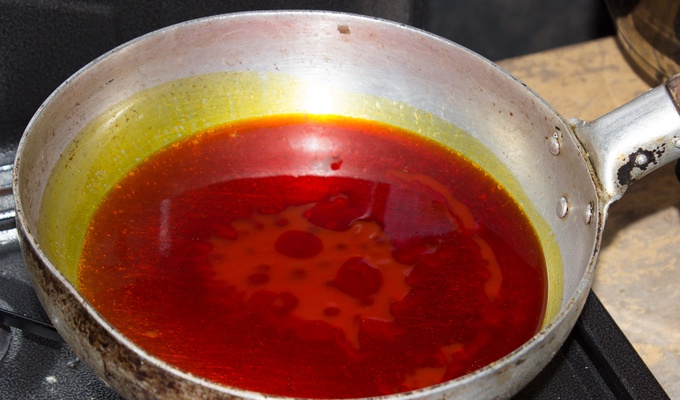Red palm oil, also known as dendê oil in Brazil, is extracted from the fruit of the oil palm tree (Elaeis guineensis) and has a long-standing significance in the culinary traditions of West Africa and certain regions of Brazil, particularly Bahia. In West Africa, red palm oil serves as a fundamental cooking fat and flavoring agent, used extensively in traditional dishes such as Nigerian jollof rice, egusi soup, banga soup, and Ghanaian palava sauce. The oil’s deep orange-red color derives from its high carotenoid content, primarily beta-carotene, which is also a precursor to vitamin A.
The transatlantic slave trade facilitated the introduction of red palm oil into Brazilian cuisine, especially within the Afro-Brazilian communities of Bahia. It became a defining ingredient in local foods such as moqueca (fish stew), acarajé (black-eyed pea fritters), and vatapá (bread and seafood stew). These dishes prominently feature dendê oil not only for its color, which lends a distinctive orange hue, but also for its characteristic flavor.
From a culinary perspective, red palm oil has a dense, earthy, and slightly nutty taste, sometimes described as pungent or savory, and imparts a distinctive aroma to cooked dishes. It has a high smoke point, making it suitable for frying, sautéing, and as a flavor base in stews and sauces.
However, the cultivation of oil palms has been associated with significant ecological concerns, including deforestation, biodiversity loss, and habitat destruction, especially outside its native West African range. Efforts toward sustainable production are ongoing, with some initiatives promoting traditional cultivation methods that coexist with local rainforest agriculture, but large-scale monoculture plantations, especially in Southeast Asia, have had major environmental impacts.
